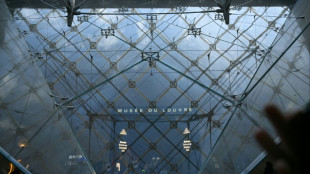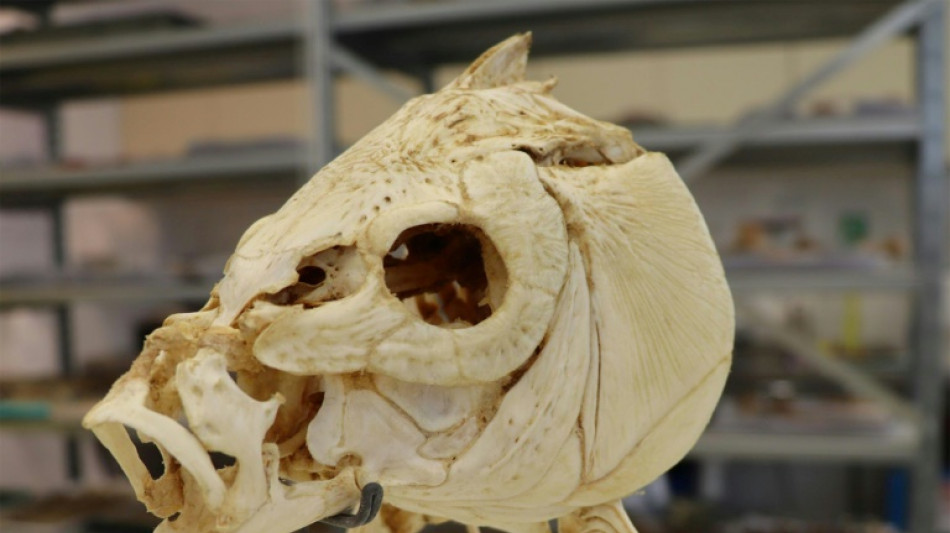
-
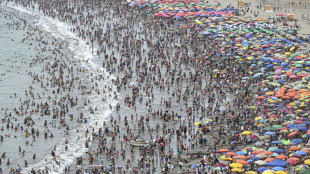 One of Lima's top beaches to close Sunday over pollution
One of Lima's top beaches to close Sunday over pollution
-
'Nothing is impossible': Shaidorov shocks favourite Malinin to make history

-
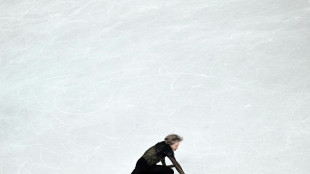 Malinin wilts at Olympics as Heraskevych loses ban appeal
Malinin wilts at Olympics as Heraskevych loses ban appeal
-
Bhatia joins Hisatsune in Pebble Beach lead as Fowler surges

-
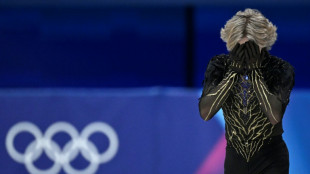 Malinin meltdown hands Shaidorov Olympic men's figure skating gold
Malinin meltdown hands Shaidorov Olympic men's figure skating gold
-
Top seed Fritz makes ATP Dallas semis with fantastic finish

-
 Patriots star receiver Diggs pleads not guilty to assault charges
Patriots star receiver Diggs pleads not guilty to assault charges
-
Havana refinery fire under control as Cuba battles fuel shortages
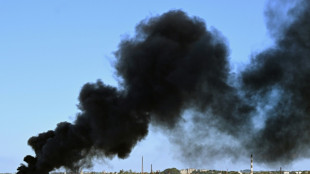
-
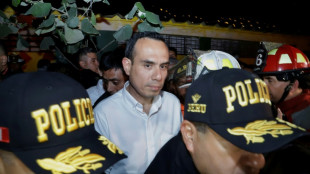 Peru Congress to debate impeachment of interim president on Tuesday
Peru Congress to debate impeachment of interim president on Tuesday
-
Snowboard veteran James targets 2030 Games after Olympic heartbreak
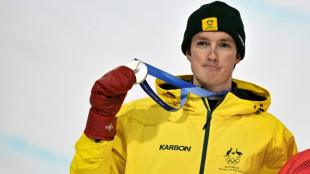
-
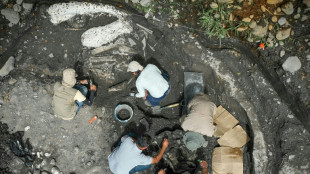 Costa Rica digs up mastodon, giant sloth bones in major archaeological find
Costa Rica digs up mastodon, giant sloth bones in major archaeological find
-
Trump says change of power in Iran would be 'best thing'
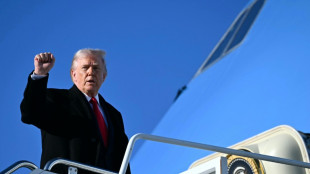
-
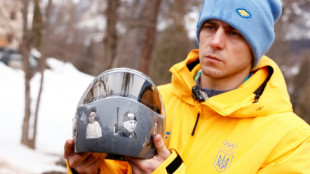 Ukrainian skeleton racer Heraskevych loses appeal against Olympic ban
Ukrainian skeleton racer Heraskevych loses appeal against Olympic ban
-
Paris police shoot dead knife man at Arc de Triomphe

-
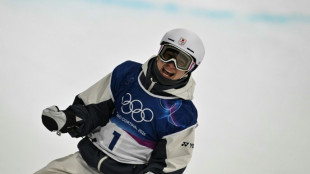 Japan's Totsuka wins Olympic halfpipe thriller to deny James elusive gold
Japan's Totsuka wins Olympic halfpipe thriller to deny James elusive gold
-
Canada's PM due in mass shooting town as new details emerge
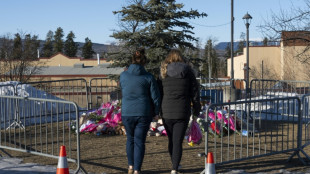
-
 Neto treble fires Chelsea's FA Cup rout of Hull
Neto treble fires Chelsea's FA Cup rout of Hull
-
Arbitrator rules NFL union 'report cards' must stay private
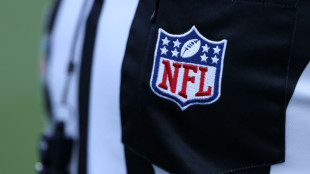
-
 Dortmund thump Mainz to close in on Bayern
Dortmund thump Mainz to close in on Bayern
-
WHO sets out concerns over US vaccine trial in G.Bissau

-
 Skeleton racer Weston wins Olympic gold for Britain
Skeleton racer Weston wins Olympic gold for Britain
-
Ex-CNN anchor pleads not guilty to charges from US church protest

-
 Berlin premiere for pic on jazz piano legend Bill Evans
Berlin premiere for pic on jazz piano legend Bill Evans
-
Fire at refinery in Havana as Cuba battles fuel shortages
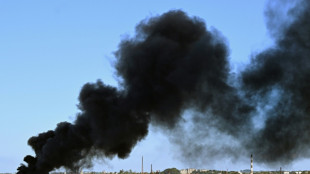
-
 A Friday night concert in Kyiv to 'warm souls'
A Friday night concert in Kyiv to 'warm souls'
-
PSG stunned by rampant Rennes, giving Lens chance to move top

-
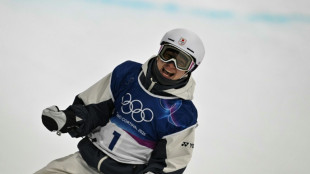 Japan's Totsuka wins Olympic halfpipe thriller as James misses out on gold
Japan's Totsuka wins Olympic halfpipe thriller as James misses out on gold
-
Indian writer Roy pulls out of Berlin Film Festival over Gaza row
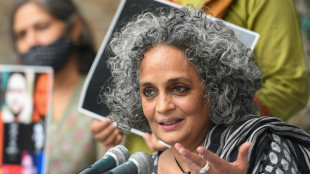
-
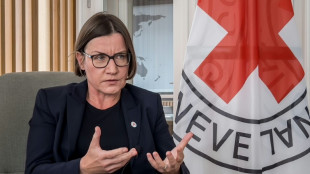 Conflicts turning on civilians, warns Red Cross chief
Conflicts turning on civilians, warns Red Cross chief
-
Europe calls for US reset at security talks

-
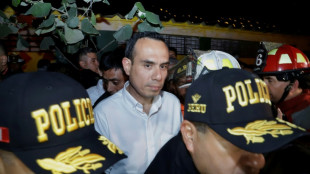 Peru leader under investigation for influence peddling
Peru leader under investigation for influence peddling
-
Rising star Mboko sets up Qatar Open final against Muchova

-
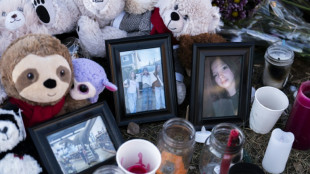 Canada PM to mourn with grieving town, new details emerge on shooter
Canada PM to mourn with grieving town, new details emerge on shooter
-
US waives Venezuela oil sanctions as Trump says expects to visit
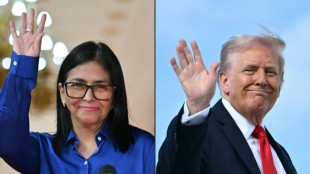
-
 NBA star Chris Paul retires at age 40 after 21 seasons
NBA star Chris Paul retires at age 40 after 21 seasons
-
WTO chief urges China to shift on trade surplus

-
 Vonn hoping to return to USA after fourth surgery on broken leg
Vonn hoping to return to USA after fourth surgery on broken leg
-
Trump sending second aircraft carrier to pile pressure on Iran

-
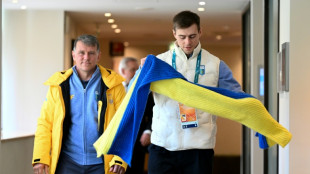 Heraskevych loses Olympics disqualification appeal, Malinin eyes second gold
Heraskevych loses Olympics disqualification appeal, Malinin eyes second gold
-
Mercedes have 'taken a step back': Russell

-
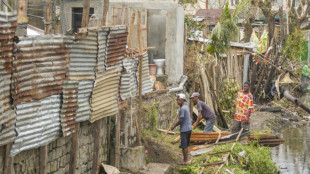 Madagascar cyclone death toll rises to 40, water, power still out
Madagascar cyclone death toll rises to 40, water, power still out
-
Earl says England inspired by last year's Calcutta Cup

-
 Stocks sluggish as AI disruption worries move to fore
Stocks sluggish as AI disruption worries move to fore
-
USA romp past Dutch in T20 World Cup to keep Super Eight hopes alive

-
 De Minaur scraps past local legend van de Zandschulp
De Minaur scraps past local legend van de Zandschulp
-
Ukrainian Heraskevych loses appeal against Olympics disqualification
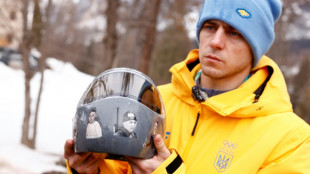
-
 Ghana rallies round traditional tunic after foreign mockery
Ghana rallies round traditional tunic after foreign mockery
-
Forest set to hire former Wolves boss Pereira: reports

-
 England rugby captain Itoje slams Ratcliffe's 'ridiculous' immigration comments
England rugby captain Itoje slams Ratcliffe's 'ridiculous' immigration comments
-
Europe should speak to Russia with 'one voice', Putin foe says


Earliest proof of cooking shows our ancestors liked well-done fish
Early human ancestors living 780,000 years ago liked their fish well-done, Israeli researchers revealed Monday, in what they said was the earliest evidence of fire being used to cook.
Exactly when our ancestors started cooking has been a matter of controversy among archaeologists because it is difficult to prove that an ancient fireplace was used to prepare food, and not just for warmth.
But the birth of the culinary arts marks an important turning point in human history, because by making food easier to chew and digest it is believed to have greatly contributed to our eventual expansion across the world.
Previously, the first "definitive evidence" of cooking was by Neanderthals and early Homo sapiens 170,000 years ago, according to a new study published in the journal Nature Ecology and Evolution.
The study, which pushes that date back by more than 600,000 years, is the result of 16 years of work by its first author Irit Zohar, an archaeologist at Tel Aviv University's Steinhardt Museum of Natural History.
During that time she has catalogued thousands of fish remains found at a site called Gesher Benot Ya'aqov in northern Israel.
The site near the banks of the Jordan River was once home to a lake, where a treasure trove of ancient fish fossils helped the team of researchers investigate exactly when the first cooks started getting inventive in the kitchen.
"It was like facing a puzzle, with more and more information until we could make a story about human evolution," Zohar told AFP.
- 'Desire to cook'? -
The first clue came in an area that contained "nearly no fish bones" but lots of teeth, she said.
This could point towards cooking because fish bones soften and disintegrate at temperatures under 500 degrees Celsius (930 Fahrenheit) -- but their teeth remain.
In the same area, a colleague of Zohar's found burnt flints and other evidence that it had previously been used as a fireplace.
And most of the teeth belonged to just two particularly large species of carp, suggesting they had been selected for their "succulent" meat, the study said. Some of the carp were over two metres (6.5 feet) long.
The "decisive" proof came by studying the teeth's enamel, Zohar said.
The researchers used a technique called X-ray powder diffraction at the Natural History Museum in London to find out how heating changes the structure of the crystals which make up enamel.
Comparing the results with other fish fossils, they found that the teeth from the key area of the lake were subjected to a temperature of between 200–500 degrees Celsius (400-930 Fahrenheit).
That is just the right range for well-cooked fish.
Whether our forerunners baked, grilled, poached or sauted their fish remains unknown, though the study suggested they may have used some kind of earth oven.
Fire is thought to have first been mastered by Homo erectus some 1.7 million years ago.
But "because you can control fire for warming, that does not mean you control it for cooking -- they could have eaten the fish next to the fire," Zohar said.
Then the human ancestors might have thrown the bones in the fire, said Anais Marrast, an archaeozoologist at France's National Museum of Natural History not involved in the study.
"The whole question about exposure to fire is whether it is about getting rid of remains or a desire to cook," she said.
K.AbuTaha--SF-PST

